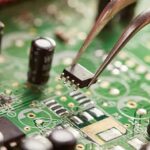Modern manufacturing demands accuracy, strength, and reliability—especially when working with materials engineered for extreme conditions. That’s why CNC machining for specialty alloys has become a preferred process across industries like aerospace, defense, medical, and energy. These alloys are designed to outperform standard metals, but their machining requires advanced techniques that CNC systems provide with precision.
What Are Specialty Alloys?
Specialty alloys are high-performance metals developed to offer exceptional resistance to heat, corrosion, wear, or pressure. These materials include:
-
Titanium
-
Inconel
-
Hastelloy
-
Monel
-
Stellite
These alloys are often used where failure is not an option—such as in turbine engines, surgical implants, or subsea systems. Unlike conventional steels or aluminum, specialty alloys are far more difficult to cut, drill, or mill due to their hardness, thermal properties, and tendency to work-harden under stress.
Why CNC Is the Right Choice
CNC (Computer Numerical Control) machining is the ideal match for specialty alloys for several reasons:
-
High precision: CNC machines can produce parts with extremely tight tolerances.
-
Repeatability: Once a program is perfected, parts can be reproduced exactly, regardless of batch size.
-
Complex geometry: Multi-axis CNC machines can create intricate shapes often required by high-spec industries.
-
Reduced human error: Automation limits the risk of inconsistencies or defects.
Manual machining struggles to achieve the same consistency or detail when working with alloys that resist conventional cutting.
Where CNC Machining for Specialty Alloys Is Used
Aerospace
Aircraft parts such as turbine blades, landing gear, and structural supports are often made of titanium and Inconel. These materials withstand high heat and pressure without deforming, and CNC precision ensures every part meets flight safety regulations.
Medical
Surgical instruments and implants must be biocompatible and corrosion-resistant. Titanium and stainless steel alloys are machined into bone plates, spinal devices, and joint replacements using CNC tools for exact dimensions and flawless finishes.
Energy and Oil & Gas
Subsea valves, pumps, and drill bits made from Monel or Hastelloy are machined to endure aggressive chemicals and high pressures. CNC machining ensures component reliability in hazardous environments.
Defense
Components for land, air, and naval systems—such as armored casings, missile parts, or heat shields—require materials like Stellite or titanium, which are both heat- and impact-resistant. CNC machining supports consistent quality under mission-critical conditions.
Key Benefits of CNC Machining Specialty Alloys
1. Superior Accuracy
CNC machines deliver precise results at tolerances down to microns. This is critical when machining parts like fuel injector nozzles or orthopedic implants.
2. Better Surface Finishes
Specialty alloys often require fine surface finishes to ensure functionality or biocompatibility. CNC machining allows for advanced tooling and lubrication to meet these needs.
3. Material Conservation
These materials are expensive, and CNC machining minimizes waste through optimized tool paths and near-net-shape cutting.
4. Production Efficiency
Modern CNC equipment supports high-speed cutting, multi-axis machining, and rapid tool changes, which reduce cycle times without compromising quality.
5. Toughness Handling
CNC software can be tailored to slow down feed rates and adapt tool angles when dealing with hard metals, reducing tool wear and preserving accuracy.
Common Challenges in Machining Specialty Alloys
Although CNC makes it possible to work with these metals, challenges remain:
-
Heat Generation: Poor thermal conductivity in alloys like Inconel causes tool-damaging heat at the cutting edge.
-
Work Hardening: Stainless steel and similar alloys tend to become harder as they are cut, leading to quicker tool wear.
-
Tool Life: Even with coated or carbide tools, cutting titanium or Stellite wears tools faster than cutting standard metals.
-
Chip Control: Stringy chips can lead to poor finishes or tool jamming without effective coolant and chip removal systems.
-
Machine Rigidity: High cutting forces require extremely rigid setups to maintain part accuracy and prevent vibration.
These issues are mitigated through proper tool selection, optimized CAM programming, and experience working with the materials.
Best Practices in CNC Machining Specialty Alloys
-
Use carbide or PCD tooling to handle high hardness and wear resistance.
-
Lower cutting speeds with high feed rates to minimize heat buildup.
-
Employ flood coolant or high-pressure systems to maintain thermal stability and evacuate chips.
-
Utilize trochoidal milling or adaptive toolpaths to reduce load on tools and improve efficiency.
-
Regular tool inspection and replacement to maintain accuracy and prevent damage to parts.
Skilled machinists and engineers tailor their process for each alloy type, ensuring optimal outcomes in both small-scale and mass production runs.
Conclusion
Working with advanced materials like titanium, Inconel, and Hastelloy demands a machining solution that can handle their unique properties. That’s where CNC machining for specialty alloys delivers unmatched value—through precision, consistency, and reliability. Whether in aerospace, medical, or energy sectors, CNC technology enables manufacturers to meet strict design and safety requirements, even with the most difficult-to-machine materials. With the right tools, programming, and expertise, CNC machining transforms high-performance alloys into mission-ready components that last.
- Best Practices in CNC Machining Specialty Alloys,
- Discover how CNC machining for specialty alloys delivers precision and reliability for aerospace, medical, and energy components made from titanium, Inconel, and other high-performance metals.
- Best Practices in CNC Machining Specialty Alloys
Related posts:
 Why KBH Games Is Perfect for Family-Friendly Online Entertainment
Why KBH Games Is Perfect for Family-Friendly Online Entertainment
 Build a Seamless School Portal with These Powerful Templates
Build a Seamless School Portal with These Powerful Templates
 7 Ways Aerospace Companies Are Using Composites to Elevate Aerial Robotics
7 Ways Aerospace Companies Are Using Composites to Elevate Aerial Robotics
 Samsung Galaxy S24 Ultra Price in Pakistan: A Closer Look at the Mid-Range Marvel
Samsung Galaxy S24 Ultra Price in Pakistan: A Closer Look at the Mid-Range Marvel
 The Ultimate Web Development Checklist for Building High-Performance Digital Experiences
The Ultimate Web Development Checklist for Building High-Performance Digital Experiences
 2025’s Best Tablets in Pakistan for Performance and cheap Price
2025’s Best Tablets in Pakistan for Performance and cheap Price
 10 Local SEO Tips to Boost Your Electronics Repair Shop Online
10 Local SEO Tips to Boost Your Electronics Repair Shop Online
 Optimizing Healthcare Operations in Qatar Through Dynamics 365 Finance and Operations
Optimizing Healthcare Operations in Qatar Through Dynamics 365 Finance and Operations







